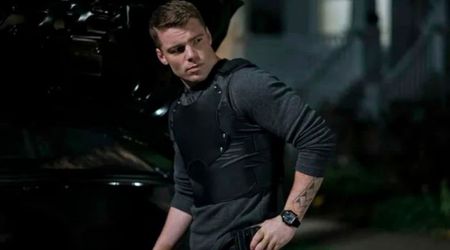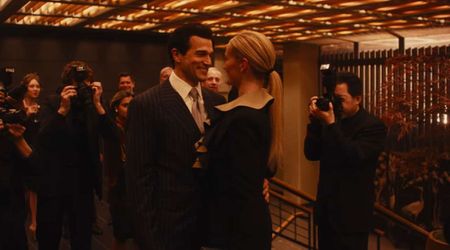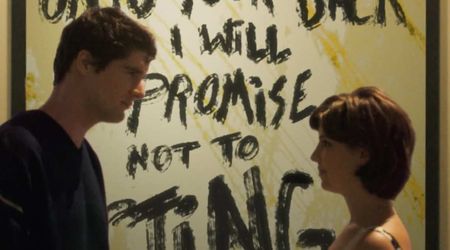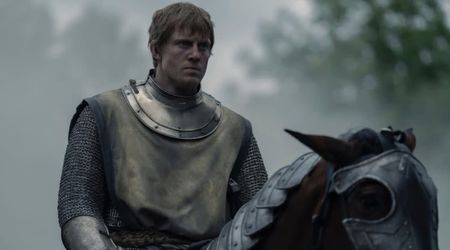'The Feed' with 10 hour-long episodes builds its world commendably but Amazon thriller’s skimpy plot and average acting are let-downs

Amazon Prime Video’s ‘The Feed’ sets up an interesting, albeit unoriginal, premise. The world as we know it is now part of a neural network. It is not the internet. It is the Feed. It connects everyone’s minds and people can now share and access everything, from memories to information, all in front of their eyes.
One can hack, alter their looks and even experience others’ physical experiences. Sounds a bit like ‘Black Mirror’, doesn’t it? Comparing ‘The Feed’ to Charlie Brooker’s ‘Black Mirror’, however, is not the point of this review, even though any show or film about futurisms and technophobia does deserve a line or two of comparison.
In any case, ‘The Feed’, with ten near hour-long episodes, has a greater scope than any anthology-format show. And it uses it judiciously, in the beginning at least. It builds a world that doesn’t attempt to scare people of a technological nightmare.
Instead, it attempts to draw parallels with the present. The examples are numerous: Global corporations surveilling us under the guise of providing a service, the state’s complicity in this act (either through turning a blind eye or actually participating), the lure of receiving validation from strangers online (and even using it to earn money), labelling anti-surveillance bodies as Luddites and anarchists, the never-ending greed of corporations, late capitalism.
But where it is strong in building and visualizing these parallels, ‘The Feed’ is almost laughably weak in its central plot. Even the plot involves a supposed anarchist terrorist group (unimaginatively named “The Resistors”), invasion of privacy, hacking and treachery.
Generic themes of power dynamics within a rich and powerful family, the connivance of the power-hungry and the air of a potboiler thriller run throughout the show, as it moves forward. The disadvantage of tackling a technophobic thriller over ten hours is that it needs a story compelling enough to make it worth it.
To paraphrase Bilbo Baggins from ‘Lord of the Rings: The Fellowship of the Ring’, the story is spread thin, like butter on too much bread. The premise is simple. “The world’s most powerful family” owns the piece of technology.
The patriarch and matriarch Lawrence and Merideth (David Thewlis and Michelle Fairley) are the faces of the organization. They have two sons, Ben, who is eager to inherit the empire (Jeremy Neumark Jones) and Tom, who is disillusioned with the technology and has no interest in the family’s wealth or power (Guy Burnet).
When the Feed begins to malfunction, it leads them down the rabbit hole where everyone is trying to figure out what is causing it, while at the same time trying to serve their own agendas.
The acting, if not bad, is subpar. Thewlis -- Lawrence Hatfield in the show -- who has proven himself a good antagonist many times before, fails to be quite as menacing, perhaps unable to find the right balance between trying to be a father and husband and trying to run the world.
Nina Toussaint-White (who plays Tom’s wife Kate Hatfield), on the other hand, stands out. But only on occasion. Her role as a mother worried about her daughter’s safety while battling the dread of a menacing technological disaster, feels real.
All said and done, ‘The Feed’ is not a bad show. Again, as an exercise in world-building, it is a commendable effort. And even with a weak-ish story, it manages to keep one interested enough to not look at their phone every five minutes. And in a connectivity-obsessed world, the show manages to feel relatable about certain anxieties without appearing exaggerated.
In a post-‘Black Mirror’ era, however, the show based on Nick Clark Windo’s novel of the same name, fails to understand the virtue of telling a tight story (to be fair on that count, even ‘Black Mirror’ does so after season 3).
The dread of the Feed wears off after a couple of episodes -- it’s been demonstrated enough by then. And unlike ‘Black Mirror’, it never quite manages to provide its audience with the same washed-up epiphany: “Technology, bad”.
‘The Feed’ is available for streaming on Amazon Prime Video.










